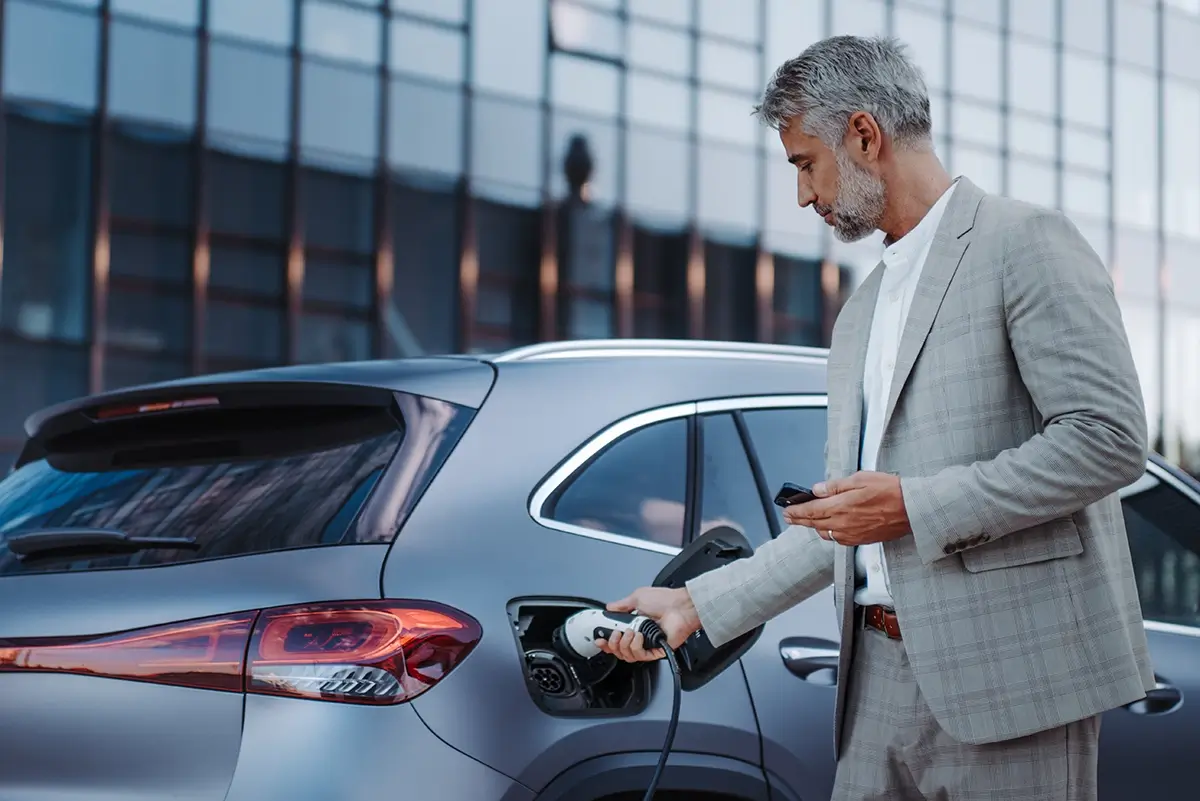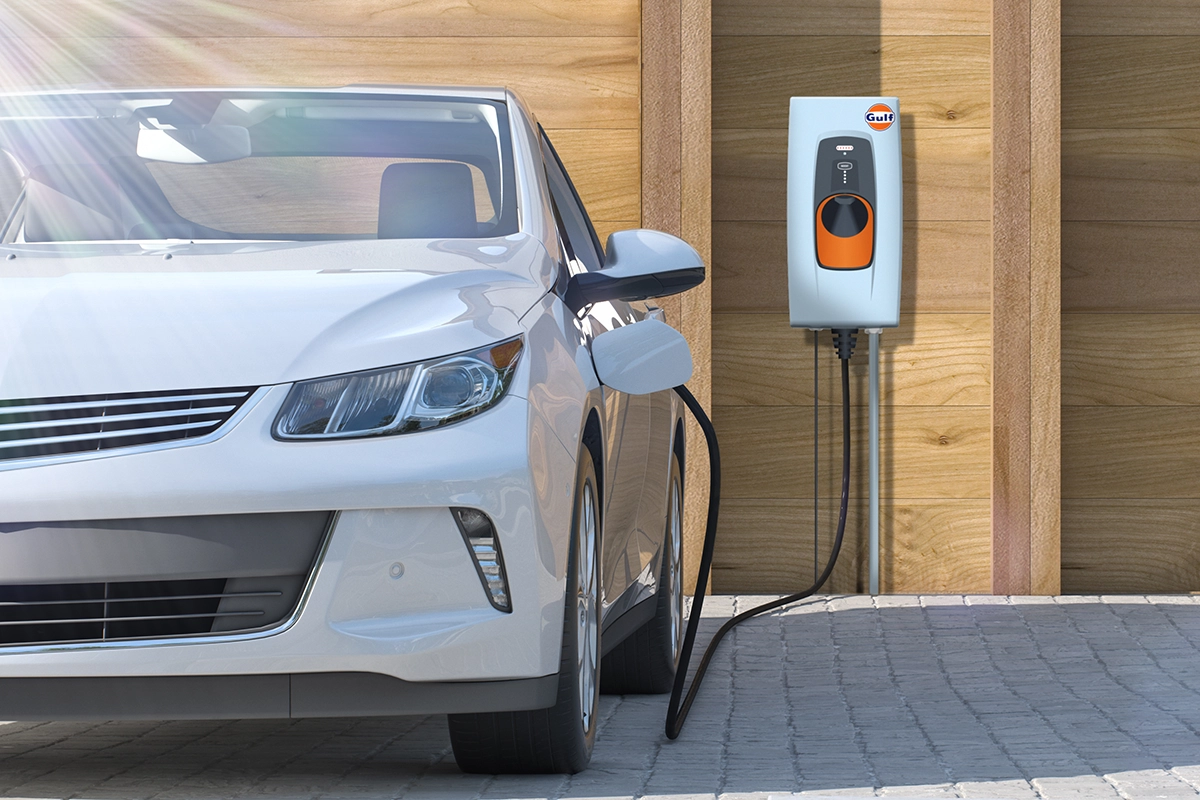What oils, lubricants or fluids do electric vehicles use and how can they improve performance?
07 Apr 2023

Whether it’s for leisure or commercial transport, one thing is for certain – electric and hybrid vehicles are a big part of everyone’s future. Industries and individuals alike are embracing this exciting and sustainable new technology. So, how important is using the right lubrication and fluids in your electric vehicle and what difference does it make to its performance and lifespan?
Working towards an electrified tomorrow
The shift in the automotive industry from internal combustion engine (ICE) vehicles to electric vehicles (EVs) has led to various exciting developments in EV fluids to help minimise friction, enhance durability, increase efficiency and boost performance in both electric and hybrid vehicles.
Why do electric and hybrid vehicles require lubricants?
A conventional diesel or petrol (gasoline) combustion engine requires internal lubrication via motor oil. With many moving parts in contact with each other, a constant thin layer of lubrication prevents friction, wear and excessive temperature. However, electric vehicles utilise an electric motor and therefore do not have valves, pistons and many other moving parts which would require lubrication. As such, EVs do not use engine oil for lubrication like traditional combustion engines - but there are other lubricants and fluids which electric vehicles require for optimal performance and longevity.
First, let’s look at fully electric vehicles. Unlike a conventional vehicle, electric vehicles utilise an electric motor for propulsion which is powered by a battery that receives energy from an electric charging point. The electric motor itself has far fewer moving parts than a conventional combustion engine. The lubrication within an electric vehicle motor is largely limited to specific sealed or greased bearings. However, in supplying energy to the electric motor, the battery in an electric vehicle can generate heat which needs to be controlled and dissipated. EV batteries are therefore often cooled via a liquid coolant fluid. This is critical to maintain the ideal operating temperature, prevent overheating, optimise performance and prolong the battery’s effective life.
Many battery electric vehicles (BEVs) utilise regenerative braking to recover energy to the battery when the vehicle is decelerating. This places extreme temperature demands on the braking systems and many electric vehicles require high performance brake fluids to maintain an effective braking and regeneration system.
There are also hybrid vehicles which feature both a conventional combustion engine and an electric motor and battery. There are broadly two types of hybrid vehicle. The first is a self-charging hybrid where the conventional combustion engine uses petrol or diesel to generate electricity to charge the battery. The second is a plug-in hybrid where the battery is charged from an electric vehicle charging point and the conventional combustion engine is largely a backup in case the battery charge runs low.
Typically, the electric motor and battery system of a hybrid vehicle requires the same fluids as an exclusively electric vehicle. However, the combustion engine in a hybrid vehicle often works at a lower operating temperature than conventional vehicles as the engine is only required to run periodically to charge the battery, rarely reaching ideal operating temperature. This can cause water to condensate around internal components of the engine which can result in damage. Therefore, specialised hybrid engine oils have been formulated to prevent this condensation and provide excellent protection against friction and wear even at lower engine temperatures. In addition, hybrid vehicles feature a transmission or gearbox which requires transmission fluid or gearbox lubrication to deliver smooth consistent performance through efficient cooling and enhanced wear protection.
Which electric vehicle fluids should I use for my electric vehicle?
Each manufacturer of electric vehicles will recommend the type of fluids to be used in their vehicles. This can typically be found in the user manual, service manual or by contacting a main dealer. You might need a range of specialised fluids for electric vehicles to help maintain their performance and durability.
Advanced brake fluids like Gulf eLEC is a polyglycol-based brake fluid developed to deliver optimal braking performance in electric vehicles. It contains corrosion and oxidation inhibitors which offer excellent protection of the brake system’s metallic components. It reduces moisture absorption and delays the onset of vapour lock for better brake system reliability and safety.
Coolant is an extended life coolant concentrate based on MEG (Mono Ethylene Glycol) for use in electric vehicles. It guards against overheating and offers reliable protection against frost and deposits. It helps keeps batteries at optimum temperature and is compatible with elastomers and hose materials used by most of European OEMs.
Driveline Fluid is designed for wet/dry, single and multi-speed transmissions in the rear axles and transaxles of electric vehicles - particularly where the axle fluid is in direct contact with electrical components.
Which fluids should I use for my hybrid vehicle?
As well as the range of fluids specifically designed for electric vehicles, hybrid vehicles also require lubricants and oils for their combustion engine and transmission. Recommendations can once again be found in the user manual, service manual or by contacting a main dealer. Many of our leading lubrication products for conventional petrol engines are also suitable for hybrid combustion engines. Look out for ‘suitable for hybrid vehicles’ on individual packs and accompanying information.

Other exciting developments in electric vehicles
The transition to electric and hybrid vehicles isn’t accelerating as fast as the experts have predicted, with infrastructure of charging being one off the greatest global challenges. To aid combat this problem, we partnered with Indra who is a rapidly growing electric vehicle and smart energy technology company which creates innovative energy products, including their 7kW residential smart charger and bi-directional vehicle-to-grid (V2G) charger. Through this and other collaborations, we strive to assist in the shift to electrification, allowing us to continue developing high-performance e-mobility products for our customers.
Explore our range of EV lubricants and fluids...

